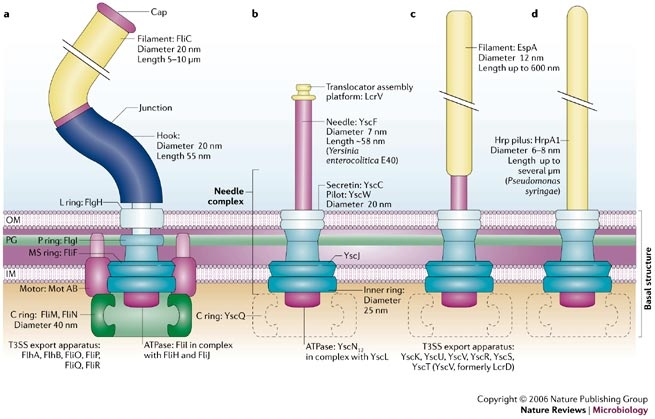Team:Paris/Perspectives
From 2008.igem.org
| (One intermediate revision not shown) | |||
| Line 1: | Line 1: | ||
{{Paris/Menu}} | {{Paris/Menu}} | ||
| + | {{Paris/Header|Perspectives}} | ||
| Line 26: | Line 27: | ||
One illustrative example is polyhydroxyalkanoic acids (PHAs), whose production/degradation cycle reduces undesirable wastes and emissions. | One illustrative example is polyhydroxyalkanoic acids (PHAs), whose production/degradation cycle reduces undesirable wastes and emissions. | ||
The biosynthesis of this polymer is currently subject to intensive work. | The biosynthesis of this polymer is currently subject to intensive work. | ||
| - | It consists in expressing in appropriate quantities 3 enzymes PhaA ,PhaB and PhaC that | + | It consists in expressing in appropriate quantities 3 enzymes PhaA ,PhaB and PhaC that sequentially process AcetoacetylcoA into its final product PHA. |
| - | This biosynthesis os subjected to 2 | + | This biosynthesis os subjected to 2 constraints : |
* Intermediate products of this pathway are used in alternatives competing metabolic pathways, | * Intermediate products of this pathway are used in alternatives competing metabolic pathways, | ||
* Only the final product is of interest,so that all intermediates products need to be transformed into PHA. | * Only the final product is of interest,so that all intermediates products need to be transformed into PHA. | ||
| Line 33: | Line 34: | ||
[[Image:PHA.jpg|center]] | [[Image:PHA.jpg|center]] | ||
| - | Two strategies are commonly used in bioengineering of | + | Two strategies are commonly used in bioengineering of metabolic pathways : |
* Sequential expression of enzymes involved in the pathways, | * Sequential expression of enzymes involved in the pathways, | ||
* Or constitutive expressions of all enzymes. | * Or constitutive expressions of all enzymes. | ||
| - | Because of the above mentioned limitations, none of these | + | Because of the above mentioned limitations, none of these approaches are adapted here . |
| - | Using the sequential expression, intermediate products would accumulate and thus be | + | Using the sequential expression, intermediate products would accumulate and thus be consumed by competing pathways. |
Using the constitutive expression a mixture of final and intermediate product would necessarily be obtained. | Using the constitutive expression a mixture of final and intermediate product would necessarily be obtained. | ||
Our FIFO could be useful here. | Our FIFO could be useful here. | ||
Indeed a FIFO expression pattern is intermediate between a purely sequential and a purely constitutive expression. | Indeed a FIFO expression pattern is intermediate between a purely sequential and a purely constitutive expression. | ||
| - | At some point all enzymes are presents ( no accumulation of intermediate products ) and during the last step only the last enzyme (PhC) is presents ( all intermediate products are | + | At some point all enzymes are presents ( no accumulation of intermediate products ) and during the last step only the last enzyme (PhC) is presents ( all intermediate products are consumed). |
Moreover, the fact that our system oscillate could provide to the cell a metabolic recovering phase. | Moreover, the fact that our system oscillate could provide to the cell a metabolic recovering phase. | ||
| - | == | + | == Bibliography == |
* The type III secretion injectisome Guy R.Cornelis Nature reviews | * The type III secretion injectisome Guy R.Cornelis Nature reviews | ||
Latest revision as of 04:52, 30 October 2008
|
Perspectives
Example 1: type III secretion injectisomeThe injectisome is a complex nanomachine that allows bacteria to deliver protein effector across eucaryotic cellular membranes. The injectisome consists of a basal structure, which resembles the basal structure of the flagellum, surmounted by either a needle, a needle and a filament or a long pilus.
In conclusion, our BacteriO'Clock can be used in a lot of new applications like for instance, bottom-up molecular machines self-assembly or new kinds of optimized chemoreactor. Example 2: metabolic engineering of polyhydroxyalkanoate biosynthesis pathwaysHuman overpopulation combined with the current lifestyle urges the rational, efficient, and sustainable use of natural resources to produce environmentally friendly plastic materials. One illustrative example is polyhydroxyalkanoic acids (PHAs), whose production/degradation cycle reduces undesirable wastes and emissions. The biosynthesis of this polymer is currently subject to intensive work. It consists in expressing in appropriate quantities 3 enzymes PhaA ,PhaB and PhaC that sequentially process AcetoacetylcoA into its final product PHA. This biosynthesis os subjected to 2 constraints :
Two strategies are commonly used in bioengineering of metabolic pathways :
Because of the above mentioned limitations, none of these approaches are adapted here . Using the sequential expression, intermediate products would accumulate and thus be consumed by competing pathways. Using the constitutive expression a mixture of final and intermediate product would necessarily be obtained. Our FIFO could be useful here. Indeed a FIFO expression pattern is intermediate between a purely sequential and a purely constitutive expression. At some point all enzymes are presents ( no accumulation of intermediate products ) and during the last step only the last enzyme (PhC) is presents ( all intermediate products are consumed). Moreover, the fact that our system oscillate could provide to the cell a metabolic recovering phase.
Bibliography
Ilana S Aldor and Jay D Keasling Department of Chemical Engineering, 201 Gilman Hall, University of California, Berkeley, 94720-1462, USA 23 September 2003
Nomura CT, Taguchi S. Department of Chemistry, State University of New York - College of Environmental Science and Forestry, 121 Jahn Laboratory, Syracuse, NY 13210, USA. |
 "
"


